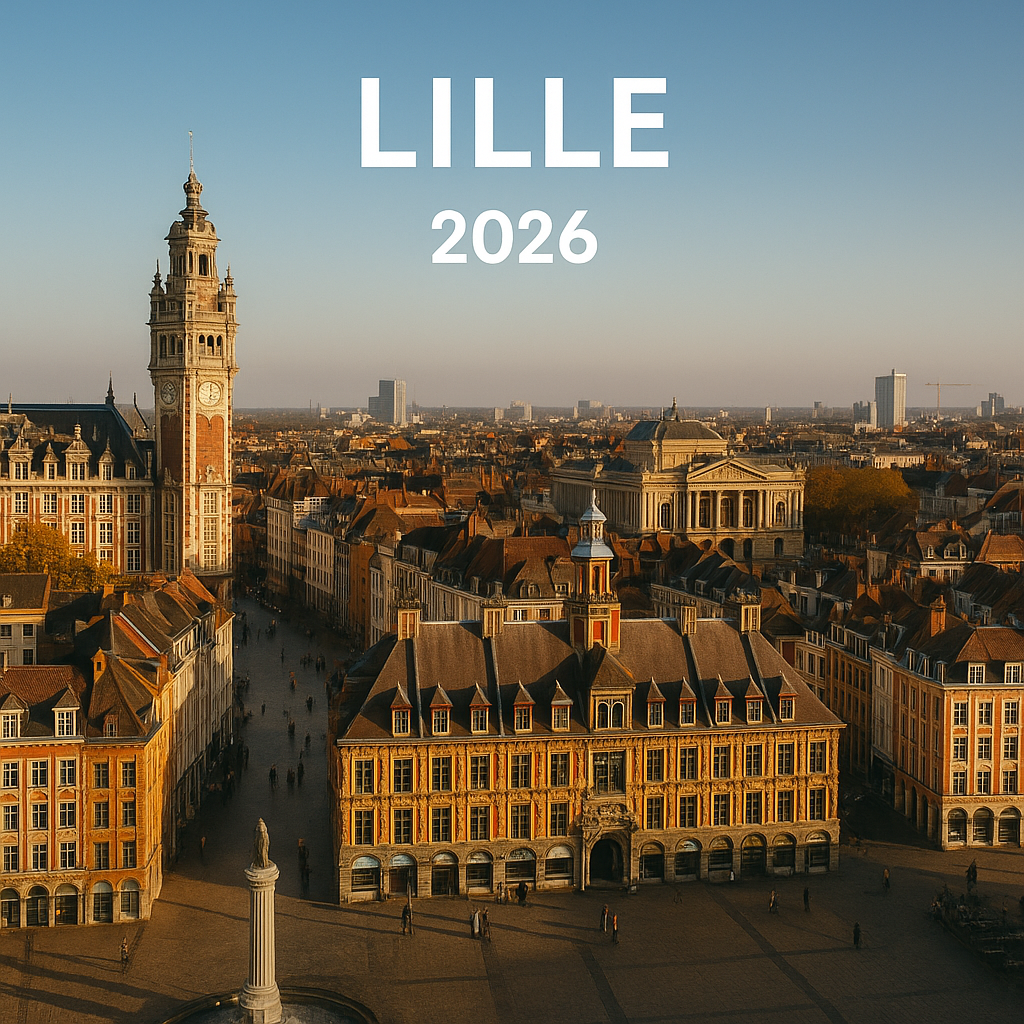Bordeaux is more than a city of wine and culture; in 2025 it stands out as one of the most dynamic employment hubs in France. Over the past few years, this southwestern metropolis has experienced rapid growth thanks to massive investment in infrastructure, a booming digital start-up scene and the expansion of its transport networks. The launch of new tram lines and the High Speed Train connection to Paris have attracted companies and talent, while public initiatives to promote green mobility have created additional jobs in urban planning and sustainable transport. Housing projects in the Bordeaux Euratlantique district are designed to support a balanced mix of residents and businesses. As the city positions itself as a hub for innovation, more and more young graduates and professionals are looking to build their careers here.
Several sectors are driving the local economy. The aeronautics and defence industry, concentrated around Mérignac Airport, has seen hiring skyrocket; according to regional reports, the number of employees in the aerospace sector increased by 36% between 2020 and 2024. Companies such as Dassault Aviation, Sabena Technics and Thales are looking for engineers, technicians and logistics experts. Bordeaux is also becoming a major centre for digital health. Dedalus, a European leader in medical software, has announced major recruitment plans following its acquisition of local firms, with hundreds of positions open for developers, project managers and data specialists. The world-famous wine industry remains a pillar of the regional economy, but it is diversifying into sustainable viticulture and wine tourism, creating roles in agronomy, marketing and hospitality. In the service sector, cafés, hotels and cultural institutions that cater to the growing tourist population offer seasonal jobs that suit students and people seeking part-time work.
These developments are taking place in a national context that remains uncertain. The Prism’Emploi barometer for May 2025 notes that temporary employment in France represents 674,700 full-time equivalent (FTE) jobs, a 3.3% decrease compared with May 2024. Transport and logistics suffered the sharpest decline (-7.7%), followed by services and commerce. However, industry and construction are stabilising with slight decreases of 0.3% and 0.8% respectively, and unskilled manual labour is starting to rebound. Nouvelle-Aquitaine, the region that includes Bordeaux, remains one of the most affected, but the ongoing reindustrialisation and green transition programmes aim to reverse this trend. Local authorities are launching training programmes in cybersecurity, renewable energy and sustainable urban planning to prepare residents for future jobs, while start-ups in artificial intelligence and clean technology are raising record funding.
For job seekers, these trends mean combining traditional job-search methods with adaptability. Attending recruitment fairs, networking events and hackathons is essential, but it is equally important to develop digital skills through online courses and certifications. Gig work and micro-services are on the rise, and platforms like Askaide make it easy to offer your skills to households and businesses. Whether you are helping a family with homework help, providing child-care services for working parents, or offering housekeeping services to busy professionals, these tasks enable you to generate income while building a flexible schedule. Students can pick up evening babysitting shifts, retirees can assist with gardening or pet care, and bilingual residents can translate documents or teach languages. Flexibility is the key to balancing study, work and personal development.
Lastly, it is vital to know your rights and maintain a healthy work-life balance. Even in part-time or temporary roles, employees in France benefit from strong labour protection, including minimum wage regulations, paid holidays and social security. Make sure you declare your income and understand tax credits such as the CESU scheme, which simplifies the process for households employing service providers. Keep an eye on mobility projects like the Bordeaux tram extensions, as they improve access to job zones. By staying informed and using resources like Askaide, you can turn the current challenges into opportunities. In the coming years, Bordeaux will continue to reinvent itself, and those who embrace its evolving job market will find numerous paths to success.
Bordeaux also benefits from the trend toward remote and hybrid work. Since the pandemic, many companies have adopted teleworking, enabling employees to live in cities with better quality of life. Several Paris-based startups have opened satellite offices in Bordeaux to attract talent seeking a more affordable lifestyle. Co-working spaces like La Cité du Numérique and Mama Works are thriving, offering freelancers and digital nomads a professional environment and networking opportunities. Remote-friendly roles include customer support, digital marketing, software development and data analysis, allowing you to work for international clients without leaving the region. The city’s universities and coding bootcamps provide training in Python, UX design and cybersecurity, preparing residents for these future-proof jobs.
Environmental transition is another key theme in 2025. Bordeaux aims to become a carbon-neutral city, and this ambition is creating green jobs in energy efficiency, waste management and urban greening. Construction companies are recruiting specialists in eco-friendly building techniques to comply with new regulations, and local authorities are investing in cycling infrastructure and electric vehicle charging networks. The port of Bordeaux is implementing innovative logistics solutions to reduce emissions, generating positions in supply-chain management and sustainable engineering. Citizens are increasingly turning to car sharing and public transport, boosting the demand for drivers and maintenance staff. If you have a background in biology, engineering or environmental science, now is the time to explore the growing number of eco-jobs in the region.
Several sectors are driving the local economy. The aeronautics and defence industry, concentrated around Mérignac Airport, has seen hiring skyrocket; according to regional reports, the number of employees in the aerospace sector increased by 36% between 2020 and 2024. Companies such as Dassault Aviation, Sabena Technics and Thales are looking for engineers, technicians and logistics experts. Bordeaux is also becoming a major centre for digital health. Dedalus, a European leader in medical software, has announced major recruitment plans following its acquisition of local firms, with hundreds of positions open for developers, project managers and data specialists. The world-famous wine industry remains a pillar of the regional economy, but it is diversifying into sustainable viticulture and wine tourism, creating roles in agronomy, marketing and hospitality. In the service sector, cafés, hotels and cultural institutions that cater to the growing tourist population offer seasonal jobs that suit students and people seeking part-time work.
These developments are taking place in a national context that remains uncertain. The Prism’Emploi barometer for May 2025 notes that temporary employment in France represents 674,700 full-time equivalent (FTE) jobs, a 3.3% decrease compared with May 2024. Transport and logistics suffered the sharpest decline (-7.7%), followed by services and commerce. However, industry and construction are stabilising with slight decreases of 0.3% and 0.8% respectively, and unskilled manual labour is starting to rebound. Nouvelle-Aquitaine, the region that includes Bordeaux, remains one of the most affected, but the ongoing reindustrialisation and green transition programmes aim to reverse this trend. Local authorities are launching training programmes in cybersecurity, renewable energy and sustainable urban planning to prepare residents for future jobs, while start-ups in artificial intelligence and clean technology are raising record funding.
For job seekers, these trends mean combining traditional job-search methods with adaptability. Attending recruitment fairs, networking events and hackathons is essential, but it is equally important to develop digital skills through online courses and certifications. Gig work and micro-services are on the rise, and platforms like Askaide make it easy to offer your skills to households and businesses. Whether you are helping a family with homework help, providing child-care services for working parents, or offering housekeeping services to busy professionals, these tasks enable you to generate income while building a flexible schedule. Students can pick up evening babysitting shifts, retirees can assist with gardening or pet care, and bilingual residents can translate documents or teach languages. Flexibility is the key to balancing study, work and personal development.
Lastly, it is vital to know your rights and maintain a healthy work-life balance. Even in part-time or temporary roles, employees in France benefit from strong labour protection, including minimum wage regulations, paid holidays and social security. Make sure you declare your income and understand tax credits such as the CESU scheme, which simplifies the process for households employing service providers. Keep an eye on mobility projects like the Bordeaux tram extensions, as they improve access to job zones. By staying informed and using resources like Askaide, you can turn the current challenges into opportunities. In the coming years, Bordeaux will continue to reinvent itself, and those who embrace its evolving job market will find numerous paths to success.
Bordeaux also benefits from the trend toward remote and hybrid work. Since the pandemic, many companies have adopted teleworking, enabling employees to live in cities with better quality of life. Several Paris-based startups have opened satellite offices in Bordeaux to attract talent seeking a more affordable lifestyle. Co-working spaces like La Cité du Numérique and Mama Works are thriving, offering freelancers and digital nomads a professional environment and networking opportunities. Remote-friendly roles include customer support, digital marketing, software development and data analysis, allowing you to work for international clients without leaving the region. The city’s universities and coding bootcamps provide training in Python, UX design and cybersecurity, preparing residents for these future-proof jobs.
Environmental transition is another key theme in 2025. Bordeaux aims to become a carbon-neutral city, and this ambition is creating green jobs in energy efficiency, waste management and urban greening. Construction companies are recruiting specialists in eco-friendly building techniques to comply with new regulations, and local authorities are investing in cycling infrastructure and electric vehicle charging networks. The port of Bordeaux is implementing innovative logistics solutions to reduce emissions, generating positions in supply-chain management and sustainable engineering. Citizens are increasingly turning to car sharing and public transport, boosting the demand for drivers and maintenance staff. If you have a background in biology, engineering or environmental science, now is the time to explore the growing number of eco-jobs in the region.






